psychology of human interactions
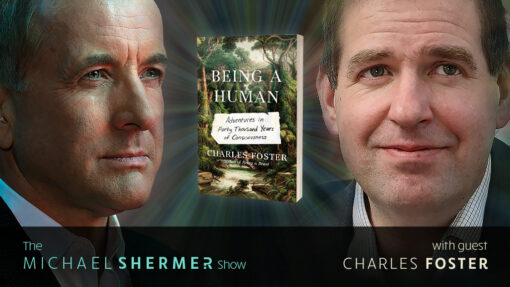
In episode 220, Michael Shermer speaks with Charles Foster about his book Being a Human: Adventures in Forty Thousand Years of Consciousness. Drawing on psychology, neuroscience, natural history, agriculture, medical law and ethics, Charles Foster makes an audacious attempt to feel a connection with 45,000 years of human history.
In episode 220, Michael Shermer speaks with Charles Foster about his book Being a Human: Adventures in Forty Thousand Years of Consciousness. Drawing on psychology, neuroscience, natural history, agriculture, medical law and ethics, Charles Foster makes an audacious attempt to feel a connection with 45,000 years of human history.
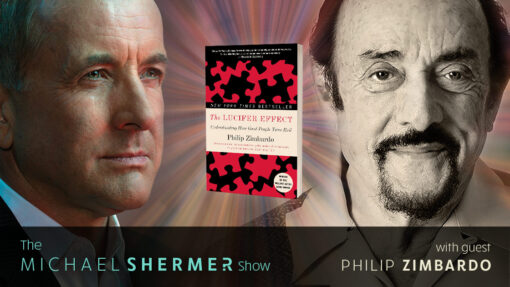
August 15 marks the 50th anniversary of day one of the Stanford Prison Experiment — one of the most controversial studies in the history of social psychology. In episode 200, Michael Shermer speaks with renowned social psychologist and creator of the Stanford Prison Experiment Philip Zimbardo, exploring the mechanisms that make good people do bad things, how moral people can be seduced into acting immorally, and what this says about the line separating good from evil.
In episode 200, Michael Shermer speaks with renowned social psychologist and creator of the Stanford Prison Experiment Philip Zimbardo, exploring the mechanisms that make good people do bad things, how moral people can be seduced into acting immorally, and what this says about the line separating good from evil.
In episode 187, Michael speaks with Robert Cialdini — New York Times bestselling author of Pre-Suasion and the seminal expert in the fields of influence and persuasion — about the psychology of why people say yes and how to apply these insights ethically in business and everyday settings. PLUS, the newest issue of Skeptic magazine (26.2: Drug Trips & Reality) is now available in print and digital formats.
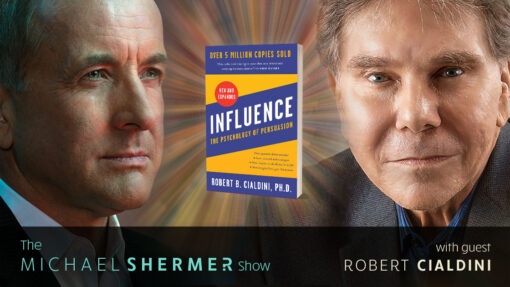
In episode 187, Michael speaks with Robert Cialdini — New York Times bestselling author of Pre-Suasion and the seminal expert in the fields of influence and persuasion — about the psychology of why people say yes and how to apply these insights ethically in business and everyday settings.
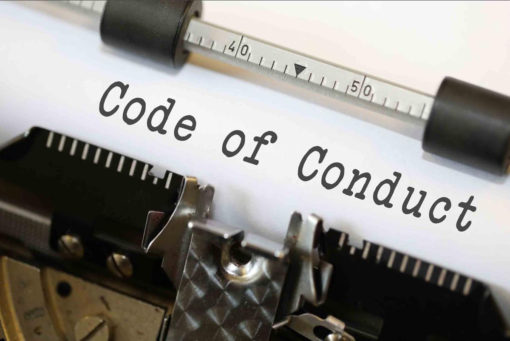
Carol Tavris avers that organizations’ Codes of Conduct that try to specify each and every possible behavior they wish to prohibit (or encourage), will find themselves in linguistic and psychological quicksand.
In Science Salon # 104 Michael Shermer speaks with Judith Finlayson about her book You Are What Your Grandparents Ate: What You Need to Know About Nutrition, Experience, Epigenetics and the Origins of Chronic Disease. PLUS: Carol Tavris avers that organizations’ Codes of Conduct that try to specify each and every possible behavior they wish to prohibit (or encourage), will find themselves in linguistic and psychological quicksand.

Often someone who makes a public comment out of compliance with progressive opinion is set upon by online vigilantes, attacked personally, repents, and promises to do better next time. Using two cases as touchstones, Stewart Justman draws an analogy between the extraction of such an apology and the extraction of a false confession to a crime of violence, the critical point being that in both instances the pressured party may well begin to believe the accusations against him or her.
In Science Salon # 57, Dr. Shermer speaks with legendary biologist and primatologist Dr. Frans de Waal about his empirical and theoretical work on animal societies, politics, intelligence, sentience, consciousness and, now, feelings and emotions. PLUS, using two cases as touchstones, Stewart Justman draws an analogy between the extraction of an apology and the extraction of a false confession to a crime of violence.
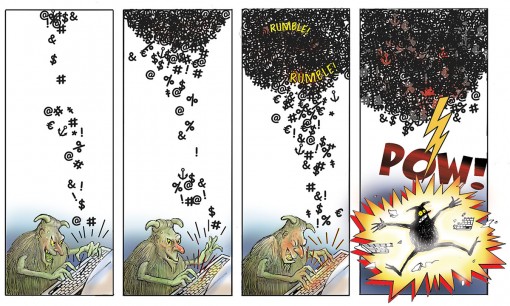
In this week’s eSkeptic: Science Salon: This Sunday: Lisa Randall on Dark Matter & the Dinosaurs Feature: An Internet Story for Our Time Skepticality: Based on The Bible SCIENCE SALON THIS SUNDAY Dark Matter and the Dinosaurs: The Astounding Interconnectedness of the Universe Event Date: Sunday, Nov. 22, 2015 at 2 pm Speaker: Dr. Lisa […]

Can venting angrily on the Internet lead to heart disease? Carol Tavris discusses some research that points to a significant correlation between our negative language patterns (such as anger, hatred, and aggression) and health risks such as heart disease.
Face-to-face contact matters. From birth to death, human beings are hardwired to connect to other human beings. In this lecture, psychologist Susan Pinker shows how face-to-face contact is crucial for learning, happiness, resilience, and longevity.
In this lecture, based on his book on the psychology of human interactions, organizational psychologist Dr. Adam Grant (the youngest tenured professor at the Wharton Business School) argues that as much as hard work, talent and luck, the way we choose to interact with other people defines our success or failure. Give and Take demolishes the “me-first” worldview and shows that the best way to get to the top is to focus not on your solo journey but on bringing…














